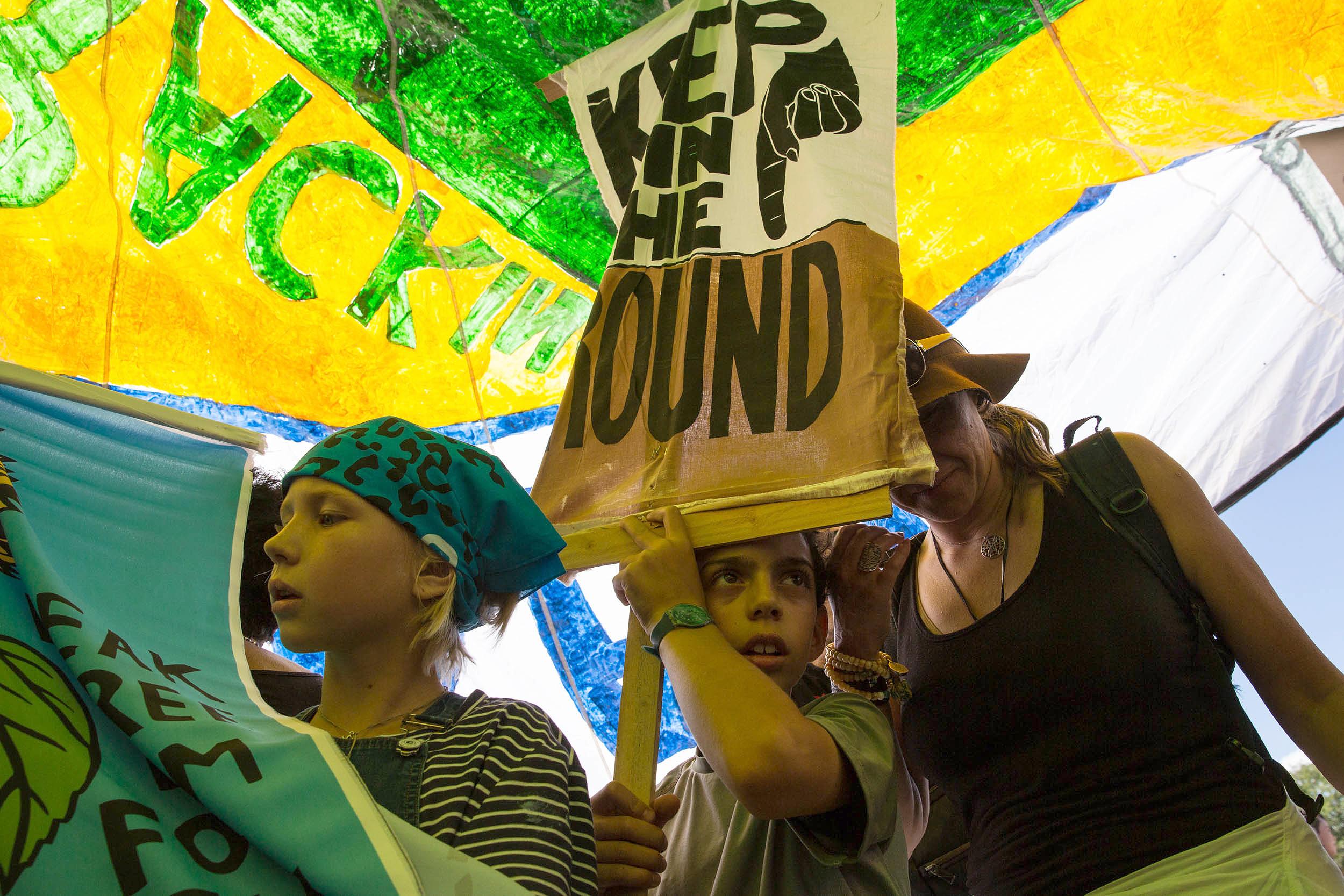
Katherine Delanoy has been waiting for the public to catch up with her on climate change.
The 88-year-old of Eagle, Colorado, said she first started reading about the issue roughly three decades ago. The scientific reports were so alarming, Delanoy went back to school to get a master's degree in environmental studies just before her 60th birthday. Today, it’s the top issue she considers before making political decisions.
“There’s been enough about climate change in the last five years. You think everyone would be on board,” she said.
Public opinion surveys suggest voters are increasingly thinking like Delanoy, especially in Colorado. Since the 1990s, polls have shown about four out of five voters believe climate change is happening. What’s new is how animating it’s become for a growing segment of voters.
“I've never seen anything like this,” said Jon Krosnick, a professor of communication, political science and psychology at Stanford University.
Krosnick has led a project to measure public opinion on climate change for 23 years. In the latest survey, a quarter of U.S. voters said global warming is “extremely personally important,” marking a nearly twofold increase from 2015. The same appears to be true in Colorado. New findings from an upcoming report by Krosnick, along with other researchers at Stanford, Resources for the Future, and ReconMR, found 24 percent of Coloradans see warming the same way.
Krosnick said that means climate change has become a critical motivating issue for a segment of the Colorado electorate, along the lines of abortion or gun control.
“If you come to be passionate about climate change, what that means is you're making this very big commitment to gather information about the issue, to read every newspaper story,” he said. “It's a sort of a constant hobby of yours to be engaged on this issue.”
Krosnick can’t explain what’s behind the recent increase, but Colorado voters offer some clues. CPR News has conducted three informal surveys over the course of a year to help guide election coverage. More than any other issue, respondents said the climate and the environment would help determine their votes in the primaries and in November. While it’s not a scientific survey, many of the voters could explain their recent zeal on the issue.
John Pitocco, a 31-year-old product lead for a health care tech company, recently moved to West Colfax in Denver. With a baby on the way, he worries about the air quality in his neighborhood, which included a combination of pollution from vehicles and summer wildfire smoke.

“I've not been in a place where the air was choked out by smoke on a daily basis, where I couldn't really go outside,” he said. “It’s definitely brought it into clearer focus for me.”
At first, Pitocco resisted describing himself as a single-issue climate voter. As someone who prefers to bike and walk around his neighborhood, he said he’s more invested in the local politics of public transit and housing density. Then, upon further reflection, he said each of those issues has a “one-to-one tie to climate change.” For example, he said fighting sprawl can also cut down on emissions.
Lindsay Nerad, a 42-year-old sustainable landscaper who lives and works on the Front Range, had her own reasons to care about the issue. She worries her favorite natural places won’t survive in a warmer world.
“The state of the environment is personal to me because it's sort of like my refuge,” she said.
Katherine Delanoy, the 88-year-old in Eagle, can’t look away from reports of rapid warming in the Arctic. She fears climate change will doom her three great-grandchildren to a far less habitable planet.
“I can understand being very worried about the pandemic, but I cannot understand not being worried about climate change,” she said.
Each of the voters told CPR News their concerns about climate change haven’t diminished in recent months. Krosnick, the Stanford political scientist, said he has come to a similar finding through the public opinion surveys: The segment of voters paying close attention to climate change has only grown amid a pandemic and an economic downturn.
In the past, some social scientists have seen climate change as a “luxury” political issue, meaning it matters to people who don’t have to worry about things like food, income or health care. Krosnick said his latest findings suggest there isn’t a tension between bread-and-butter economic issues and global warming.
“In a way, we’ve seen the most power causal evidence we can,” he said, referring to the polling following the start of the pandemic. “Big economic shock, then, if anything, we’re seeing increases in many of the indicators of public belief in the existence and threat of climate change.”
The finding could also help explain how climate change has factored into the Senate election between former Gov. John Hickenlooper and incumbent Sen. Cory Gardner.
Both candidates have recognized the reality of human-caused climate change. Where they split is the economic costs of reducing fossil fuel production. In the current campaign, Hickenlooper, a Democrat, has said he sees hydraulic fracturing eventually becoming “obsolete” as renewable energy becomes cheaper. “The challenge as any economy changes is how you get out ahead of it,” he said at a recent debate.
Meanwhile, Republican Gardner has attacked Hickenlooper for putting thousands of oil and gas jobs at risk.
Krosnick said his research suggests that line of attack might not resonate with voters.
“The overwhelming majority do not buy the claim that doing things about climate change will hurt the economy,” he said. “The plurality actually believed that doing things about climate change will help create new industries, create new jobs.”
That’s certainly the case for Pitocco, the health care tech worker in Denver. He described the Senate race as a choice between “the lesser of two evils.” He can’t forgive Gardner for his Senate votes against efforts to reign in certain greenhouse gas emissions. As for Hickenlooper, Pitocco dislikes how he fought local limits on oil and gas as governor. Now, he’s glad Hicknelooper sees climate change as an opportunity.
“A lot of pro-climate initiatives would be a huge boon to our economy,” he said. “Instead of being known for oil and gas, we could be the new ones known for renewable tech.”









